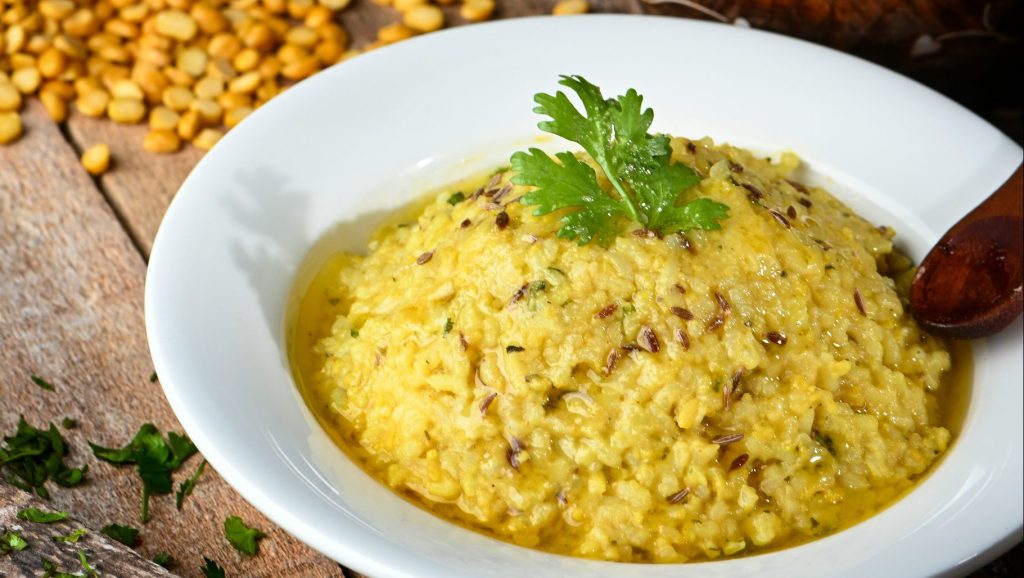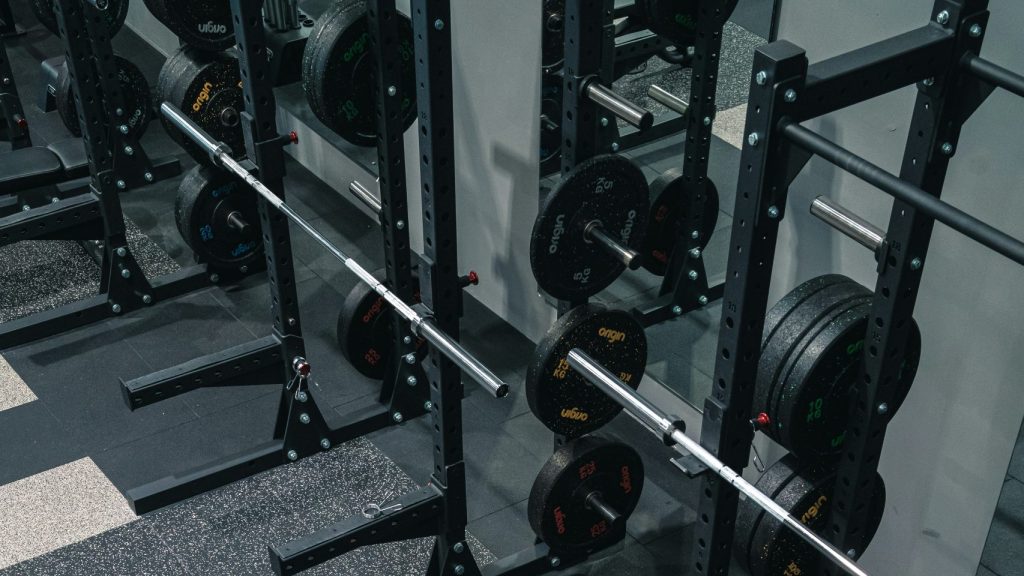Table of Contents
Protein is essential for muscle development, recovery, and overall health for individuals focused on fitness. Selecting the right protein sources is critical for achieving fitness goals, especially in muscle building. This article aims to provide a detailed guide on the best protein foods for those dedicated to improving their physique and enhancing their fitness levels.
“Did you know that not all proteins are created equal when it comes to muscle building? Understanding the difference can significantly impact your fitness results.
The article covers:
- Top Protein-Rich Foods for Muscle Gain: Highlights nutritious animal-based and plant-based proteins.
- Understanding Protein’s Role in Muscle Building: Explores how protein supports muscle repair and growth.
- Balancing Your Diet for Optimal Muscle Growth: Offers guidance on creating a balanced diet with the right mix of macronutrients.
- Protein Foods to Avoid or Limit: Identifies protein sources that may hinder muscle-building efforts and suggests alternatives.
- Innovative Protein Recipes for Muscle Building: Provides protein-rich recipes designed to support muscle growth and recovery.
The selection of the right protein sources and dietary practices is paramount for anyone focused on fitness and muscle building. The forthcoming sections will delve into detailed guides on protein-rich foods, dietary tips, and recipes that cater to fitness enthusiasts. Whether you are a seasoned fitness enthusiast or just beginning, this guide is designed to help you understand the essential role of protein in building muscle, ensuring you are well-equipped to achieve your fitness goals.
Top Protein-Rich Foods for Muscle Gain
Protein is vital for those aiming to build muscle, recover from workouts, and improve overall health. This detailed guide focuses on the top protein-rich foods essential for muscle development, categorized into animal-based proteins, plant-based proteins, and dairy and eggs, each playing a unique role in muscle building and recovery strategies.
Best Animal-Based Proteins
Animal proteins provide a complete amino acid profile essential for muscle repair and growth. Lean chicken breast, turkey, and fish are particularly beneficial due to their high protein and low fat content, making them ideal for anyone looking to increase muscle mass without unnecessary calories.
Lean chicken breast is a preferred source of protein for its low fat and high protein composition, essential for muscle building. Turkey, offering nutrients such as B-vitamins, aids in energy production and muscle repair. Fish, especially varieties rich in omega-3 fatty acids like salmon, supports heart health, reduces inflammation, and aids in muscle recovery, making it a dual-purpose food for both protein intake and omega-3 fatty acid consumption.
Top Plant-Based Proteins
“Did you know that quinoa is one of the few plant foods considered a complete protein, containing all nine essential amino acids necessary for muscle growth and repair?”
Quinoa is celebrated for its complete protein status and additional fiber and mineral content, making it a nutritional powerhouse. Lentils, high in protein, fiber, iron, and potassium, are versatile and easy to incorporate into meals. Tofu, derived from soybeans, is a complete protein and a source of isoflavones, beneficial for muscle strength and recovery.
| Protein Source | Protein Content | Benefits |
|---|---|---|
| Quinoa | ~8g per cup | Complete protein, high in fiber and minerals |
| Lentils | ~18g per cup | Rich in iron, potassium |
| Tofu | ~20g per 8 oz | Contains isoflavones, versatile in recipes |
Dairy and Eggs for Recovery
Dairy products and eggs are excellent sources of high-quality protein, aiding in muscle recovery and growth. Greek yogurt and cottage cheese are high in protein, particularly casein, a slow-digesting protein that supports muscle recovery overnight. Eggs offer essential vitamins, minerals, and a significant amount of leucine, an amino acid crucial for muscle synthesis.
Incorporating a variety of protein sources into your diet is key for muscle gain and optimal health. Animal-based proteins, plant-based options, and dairy and eggs each contribute to a balanced, protein-rich diet conducive to muscle growth and recovery. The right dietary choices significantly impact muscle development, and this guide aims to provide the information necessary to make informed decisions about protein intake.

Understanding Protein’s Role in Muscle Building
Protein is crucial for muscle repair, growth, and overall fitness enhancement. It provides the essential building blocks for muscle synthesis, a fundamental process activated after strenuous physical activities. This segment explains the scientific basis of protein synthesis, underscores the significance of precise timing for protein intake, and outlines guidelines for optimal protein consumption to support muscle-building efforts.
Protein Synthesis Basics
Muscle growth is facilitated through protein synthesis, a cellular mechanism where proteins are produced to repair and build muscle fibers. Exercise induces muscle fiber tears, which are then repaired by the body using amino acids from dietary protein. Essential amino acids, particularly leucine, play a significant role in initiating muscle protein synthesis. These amino acids must be obtained through diet, emphasizing the need for high-quality protein sources in one’s nutritional intake.
Protein Intake Timing
The timing of protein consumption is critical for enhancing muscle repair and growth. Ingesting protein within a 30 to 60-minute window after exercising can maximize the body’s ability to use these nutrients for muscle fiber repair and growth. This period, often referred to as the “anabolic window,” is when muscle receptivity to protein is at its peak. Combining protein with carbohydrates post-workout can also aid in replenishing energy stores and reducing muscle soreness, promoting faster recovery.
“Leucine is often hailed as the ‘trigger’ for muscle protein synthesis, underscoring its critical role in the muscle-building process.”
Optimal Protein Intake
The optimal amount of protein required varies based on individual fitness goals, body weight, and exercise intensity. For those engaged in regular strength training, the recommended protein intake ranges from 1.6 to 2.2 grams per kilogram of body weight per day. This recommendation ensures adequate support for muscle repair and growth, considering the overall calorie intake and the inclusion of all essential amino acids in the diet. Adjusting protein intake based on activity level and recovery needs is crucial for maintaining muscle health and enhancing performance.
Recommended Protein Intake:
- General Population: 0.8 grams per kilogram of body weight.
- Strength Training Individuals: 1.6 to 2.2 grams per kilogram, tailored to workout intensity and muscle building objectives.
- Adjustments for Activity Levels: Increases in protein needs correspond with higher activity levels and post-exercise recovery.
Understanding the role of protein in muscle synthesis, the importance of intake timing, and the determination of optimal consumption amounts are essential for effective muscle building. Following science-based dietary guidelines enhances muscle growth, recovery, and overall fitness performance, highlighting the importance of incorporating a variety of protein sources into one’s diet.
Balancing Your Diet for Optimal Muscle Growth
For individuals aiming to maximize muscle growth, the diet’s balance is just as crucial as the workout regimen. This section emphasizes the importance of a nutritionally rich diet that includes a proper balance of macronutrients and hydration, along with a strategic approach to supplementing your protein intake.
Macronutrient Ratios
A diet optimized for muscle growth must include a strategic balance of proteins, carbohydrates, and fats. Each macronutrient serves a unique function:
- Proteins are essential for the repair and growth of muscle fibers, necessitating a significant portion of the daily caloric intake.
- Carbohydrates act as the primary energy source for workouts and aid in recovery by replenishing muscle glycogen stores depleted during exercise.
- Fats, especially unsaturated ones, support overall health by maintaining hormonal balance and ensuring the proper functioning of cells.
Adjusting these macronutrient ratios according to individual fitness goals, metabolic rate, and exercise intensity is critical. A typical recommendation for muscle gain might involve a caloric distribution of 30% protein, 50% carbohydrates, and 20% fats. Monitoring and adjusting based on progress and energy levels are essential for optimal results.
Importance of Hydration
Water’s role in muscle function and recovery is paramount. It facilitates the transportation of nutrients to muscle cells and the removal of waste products, which is vital for muscle repair and growth. Proper hydration supports optimal blood volume, maintaining efficient nutrient delivery and cardiovascular function.
“Did you know that even mild dehydration can impair exercise performance and reduce your ability to build muscle effectively?”
Individuals engaged in regular physical activity should aim to consume at least 3 liters of water per day for men and 2.2 liters for women, with increased intake around exercise sessions to compensate for fluid loss through sweat.
Supplementing Your Protein Intake
Supplementing your diet with protein powders or bars can offer convenience and ensure adequate protein intake, especially critical after workouts for muscle repair. When selecting supplements, prioritizing products with minimal added sugars and artificial ingredients is vital. Additionally, incorporating supplements like fish oil, which provides omega-3 fatty acids, can support muscle growth and overall health by reducing inflammation.
Macronutrient Ratios for Muscle Growth:
| Macronutrient | Role in Muscle Growth | Recommended Intake |
|---|---|---|
| Protein | Muscle repair and growth | 30% of total calories |
| Carbohydrates | Energy source and recovery | 50% of total calories |
| Fats | Hormonal balance and cell function | 20% of total calories |
Crafting a diet that supports muscle growth involves more than just focusing on protein; it requires a comprehensive approach that balances all macronutrients, ensures adequate hydration, and intelligently uses supplements. Tailoring this nutritional strategy to individual needs and goals is the foundation for achieving and sustaining muscle development and overall fitness.

Protein Foods to Avoid or Limit
In building muscle, the quality of protein sources matters as much as quantity. It’s vital to discern which protein foods and supplements might hinder rather than help your progress. This discussion centers on identifying high-fat protein sources, sugary protein bars and shakes, and supplements with artificial additives that could detract from your health and muscle-building efforts.
High-Fat Protein Sources
Opting for lean protein sources is crucial for muscle building and overall health. High-fat proteins, especially processed meats, are linked to adverse health outcomes and provide less nutritional value for muscle growth compared to leaner options. Processed meats, high in saturated fats and sodium, can increase the risk of heart disease and detract from muscle-building goals.
“Processed meats have been classified by the World Health Organization as carcinogenic to humans, underscoring the importance of choosing healthier protein sources for not only muscle building but also overall health.”
Choosing lean meats such as chicken breast, turkey, and fish, or plant-based proteins, ensures you’re getting the most beneficial nutrients without the negative impacts of high fat and additives found in processed options.
Sugary Protein Bars and Shakes
While convenient, many protein bars and shakes are laden with added sugars and calories, which can undermine muscle growth and overall health. High sugar intake can lead to energy spikes followed by crashes, weight gain, and an increased risk of metabolic diseases.
Selecting protein bars and shakes requires careful label reading to avoid high sugar content and artificial ingredients. Opt for products with minimal added sugars, natural ingredients, and a balanced profile of macronutrients to support your fitness and health objectives.
Artificial Additives in Supplements
Supplements can play a role in meeting your daily protein requirements, especially when whole food sources are not available. However, many supplements on the market contain artificial additives that may pose health risks.
- Artificial Colors: Linked to allergic reactions and other health issues.
- Artificial Flavors: Can cause digestive problems and are often derived from chemical sources.
- Preservatives: Associated with health risks, including cancer, with long-term use.
Choosing supplements with a clean label, free from unnecessary additives, supports health and muscle growth. Look for products that prioritize natural ingredients and provide transparent information about their contents.
While protein is a cornerstone of muscle building, not all protein sources are equally beneficial. Limiting intake of high-fat proteins, sugary supplements, and products with artificial additives is key to optimizing muscle growth and maintaining health. By selecting lean proteins, reading labels for hidden sugars and additives, and choosing clean supplements, you can ensure your protein intake effectively supports your fitness goals and long-term well-being.

Innovative Protein Recipes for Muscle Building
Muscle-building diets benefit significantly from incorporating a variety of protein-rich recipes that are both nutritious and flavorful. This segment is dedicated to providing innovative recipes designed to support muscle growth, fitting easily into any lifestyle. Each recipe combines essential nutrients with practical preparation methods, ensuring you can maintain your fitness regimen without compromising on taste or nutritional value.
Quick Protein Smoothies
Protein smoothies are an excellent way to quickly deliver essential nutrients to your body, especially after a workout. They can be easily customized to fit dietary preferences and are perfect for on-the-go nutrition.
Basic Protein Smoothie Recipe:
- 1 scoop of whey or plant-based protein powder
- 1 cup of leafy greens (spinach or kale)
- 1/2 banana or 1/2 cup of mixed berries
- 1 tablespoon of chia seeds or flaxseeds
- 1 cup of almond milk or water
This simple recipe can be the foundation for countless variations, allowing you to mix and match ingredients based on your nutritional needs and taste preferences.
High-Protein Meals
Balanced, high-protein meals are crucial for muscle recovery and growth. These meals should focus on lean proteins, complex carbohydrates, and healthy fats to provide a well-rounded nutritional profile.
One effective recipe for a nutrient-rich meal is a grilled chicken or tofu salad with mixed greens, quinoa, avocado, and a vinaigrette dressing. This combination ensures a good balance of protein, healthy fats, and carbohydrates, along with a variety of vitamins and minerals.
“Quinoa is one of the few plant foods that is a complete protein, containing all nine essential amino acids necessary for muscle repair and growth.”
Protein Snacks on the Go
Maintaining consistent protein intake is easier with portable snacks that you can prepare in advance. Homemade protein bars, Greek yogurt with nuts and fruit, or sliced vegetables with hummus are excellent choices for healthy snacking.
Homemade protein bars can be made by combining oats, protein powder, almond butter, and honey, then chilling the mixture in the fridge before cutting it into bars. This snack is not only rich in protein but also provides energy through complex carbohydrates and healthy fats.
Integrating a variety of protein-rich recipes into your diet is key to supporting muscle growth and maintaining overall health. These innovative recipes offer practical, tasty options for enhancing your protein intake, aligned with the goals of any fitness enthusiast. By exploring these suggestions, you can enjoy a diet that complements your muscle-building efforts and fits seamlessly into your daily routine.
Conclusion: Essential Protein Foods for Muscle Building
In this comprehensive guide, we’ve outlined nutritional strategies essential for muscle building. By focusing on the nutritional pillars necessary for enhancing muscle growth and overall health, we provide a blueprint for athletes and fitness enthusiasts to optimize their diet. The key insights from each section form a cohesive approach to nutritional planning.
Key Insights:
- Essential Protein Foods: A diverse intake of both animal-based and plant-based proteins ensures the body receives all necessary amino acids for muscle repair and growth.
- Understanding Protein’s Role: Protein’s impact on muscle building is profound, highlighting the importance of not just quantity but also the quality and timing of intake.
- Dietary Balance: Proper macronutrient ratios and hydration are crucial for supporting muscle growth, recovery, and overall health.
- Selecting Healthy Options: Identifying and limiting high-fat protein sources, sugary supplements, and artificial additives contribute to a cleaner diet and better health outcomes.
- Innovative Recipes: Delicious, protein-rich recipes enhance dietary variety and support consistent muscle-building efforts.
The journey of muscle building extends beyond the gym, with nutrition playing a critical role in achieving fitness goals. This guide emphasizes the significance of a balanced diet, rich in quality protein sources, alongside practical recipes and tips for maintaining optimal hydration and avoiding detrimental foods and supplements. By adopting these strategies, individuals can enhance their muscle growth, recovery, and overall well-being.
“Empower your fitness journey with the knowledge and strategies outlined in this guide. Start implementing these nutritional practices today to build the muscle and health you aspire to.”
Implementing the strategies and insights shared in this guide can lead to significant improvements in muscle building and health. It’s crucial to select high-quality protein sources, balance your diet with appropriate macronutrients, stay hydrated, and choose supplements wisely. Integrating these practices into your daily routine will support your fitness journey and help you achieve your muscle-building objectives.
Citations:
- International Society of Sports Nutrition Symposium. (2005, June 18-19). Macronutrient Utilization During Exercise: Implications For Performance And Supplementation: Protein – Which is Best? Journal of Sports Science & Medicine, 3(3), 118–130. https://doi.org/10.1016/j.jssm.2004.06.013